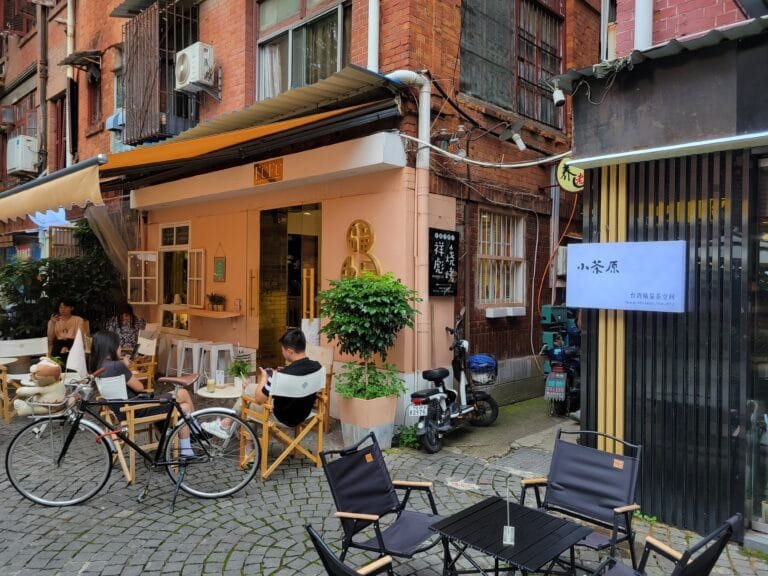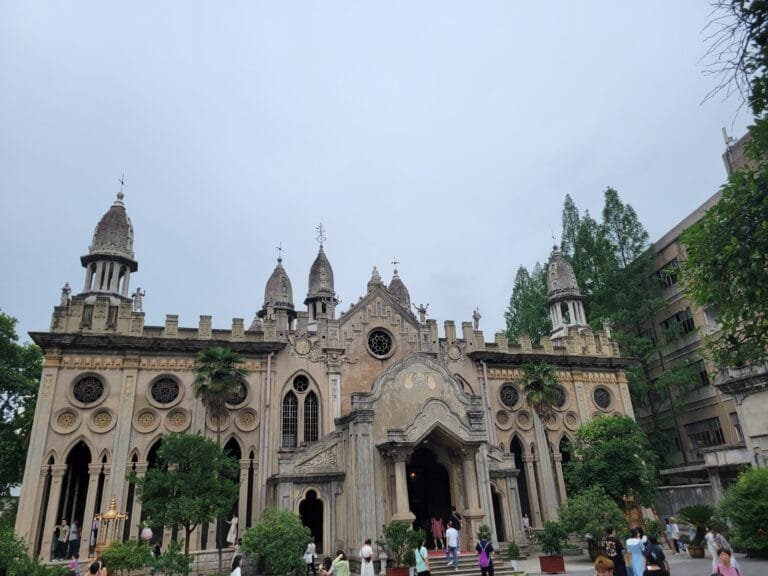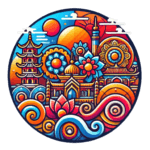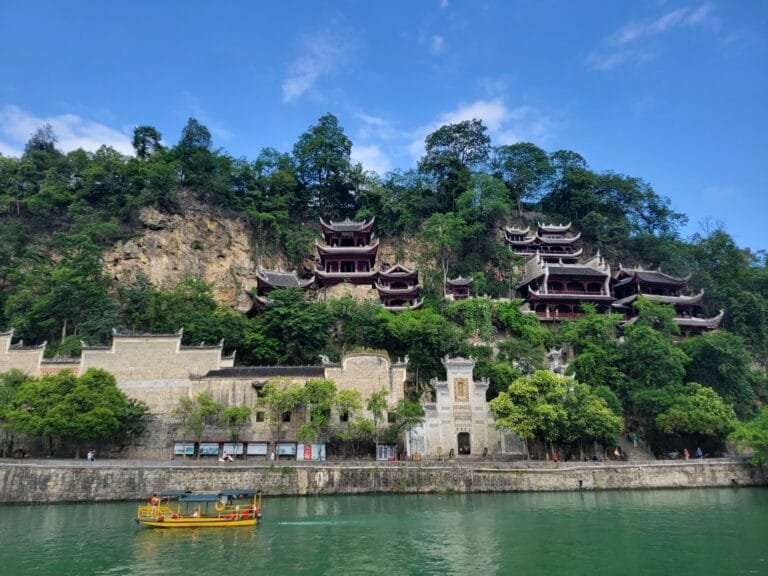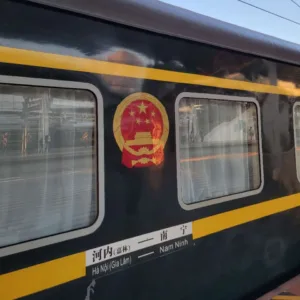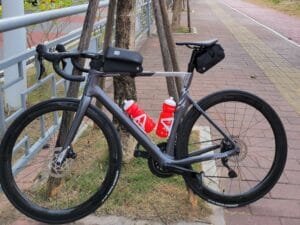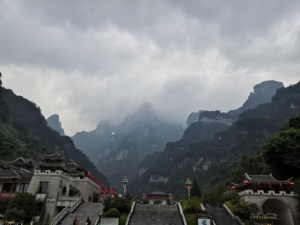Do not trust me with travel plans.
When a good friend from Germany came to visit me in China, we knew we didn’t want to do the usual tourist trail. No mega metropolises first. No Great Wall. No crowds. At least I thought so. If not, sorry Tom.
Instead, we planned a round trip that would take us through the lesser-traveled heart of the country: from Guangzhou into the hills of Guizhou Province, north to Hubei, eastward to Shanghai, and finally looping back south.
Our journey began with an early train ride to Congjiang, a town in the mountains just across the Guangxi border.
I had found it by accident, browsing through recommendations on RedNote, with pictures of winding roads and ancient rice terraces.
Congjiang didn’t disappoint, at least, not at first. The landscape was breathtaking: terraces in the hillsides like quiet green waves, winding roads slipping through misty valleys, and mountain air that felt a world away from Guangzhou’s heat.
But the town center, sadly, wore a mask of faux tradition. Over-renovated and packed with shops selling the same souvenirs, it lacked the authenticity we were hoping for.
Still, we made the most of it. That night we found a simple BBQ joint and ate with many other tourists and many laughter.
At dawn, I laced up my running shoes and slipped out for a jog through the sleepy outskirts, past foggy fields and sleepy chickens.
Later that morning, we hiked the terraces, taking in the curves and lines of centuries-old agriculture, then caught the next train to Guiyang.
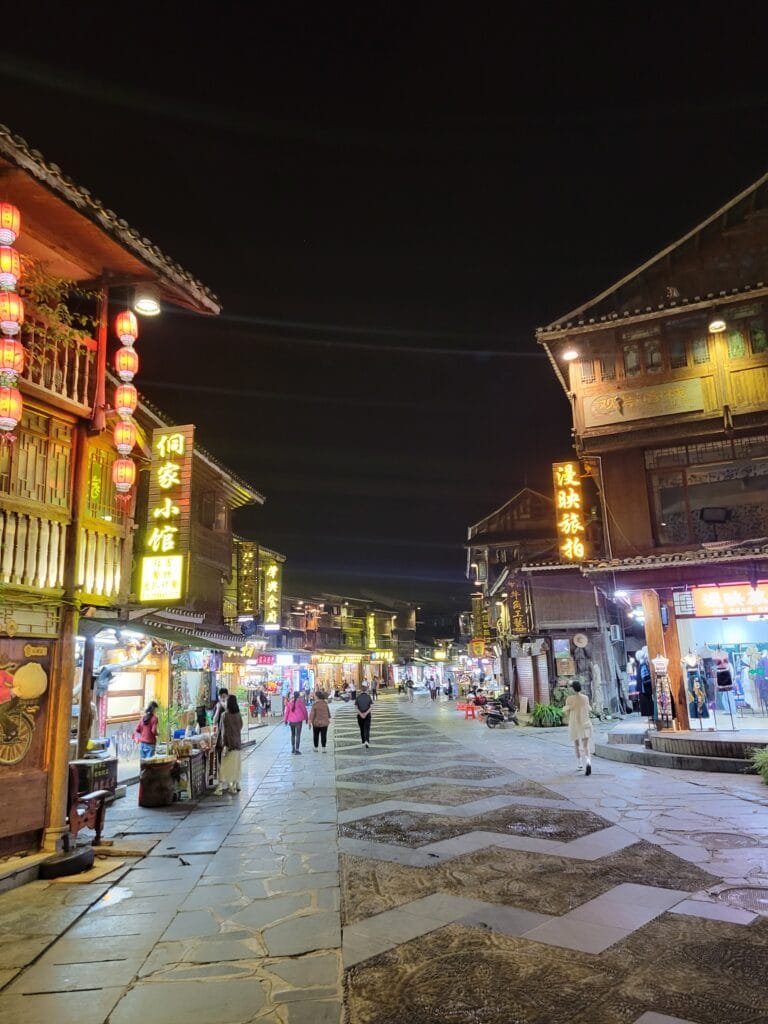
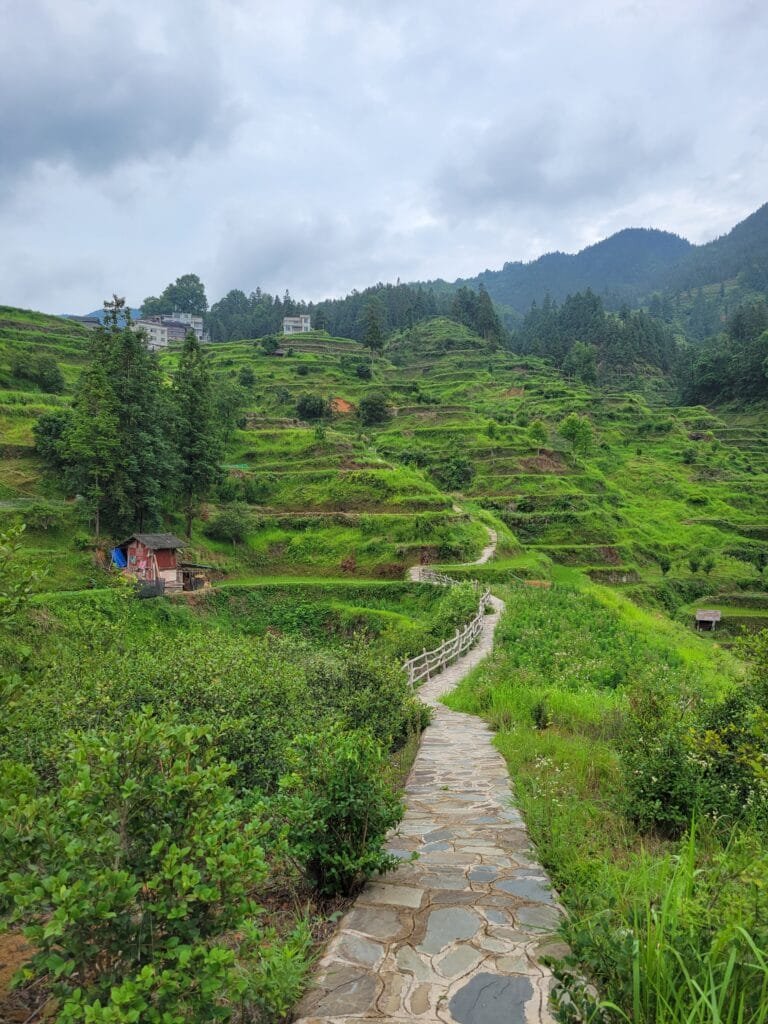
The Capital City
Guiyang, how to put it gently, didn’t charm us. The city felt like a place caught in a half-finished dream. Tower blocks loomed over cracked sidewalks, and every pedestrian crossing seemed to require a climb: stairs up, stairs down, stairs always.
Parks felt unloved, buildings worn, the grey settling over everything like dust. The mood soured. But that night, in a little bar far from the neon signs, we drank cold beer with locals who loved to have a drink with us and let the disappointment fade.
On the way to the next destination however we stopped at a stunning waterfall. Very touristic, but really stunning to walk through, behind and in front of the waterfall.
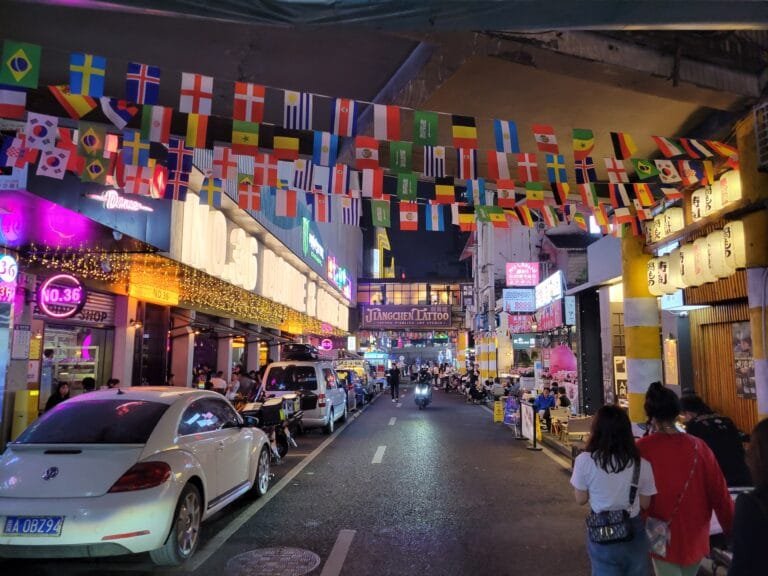
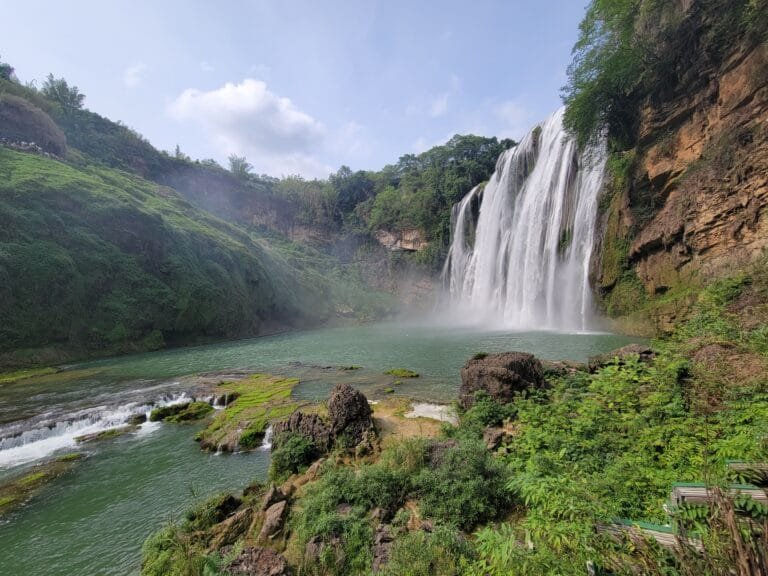
And then came Zhenyuan
Zhenyuan was magic. A ribbon of a town wrapped around a quiet river, and in a sandwish of small moutains. The old town felt real, cobbled streets, traditional wooden houses.
Off-season meant we landed a gorgeous hotel room directly on the river for next to nothing. For two days we enjoyed, walked and enjoyed the beauty.
Sadly the weather turned bad on the second day. My friend still had a walk up the mountain before we headed to our next destination.
By the time we reached the next stop, we had reset our expectations. After the greyness of Guiyang, we were prepared for more concrete, more chaos.
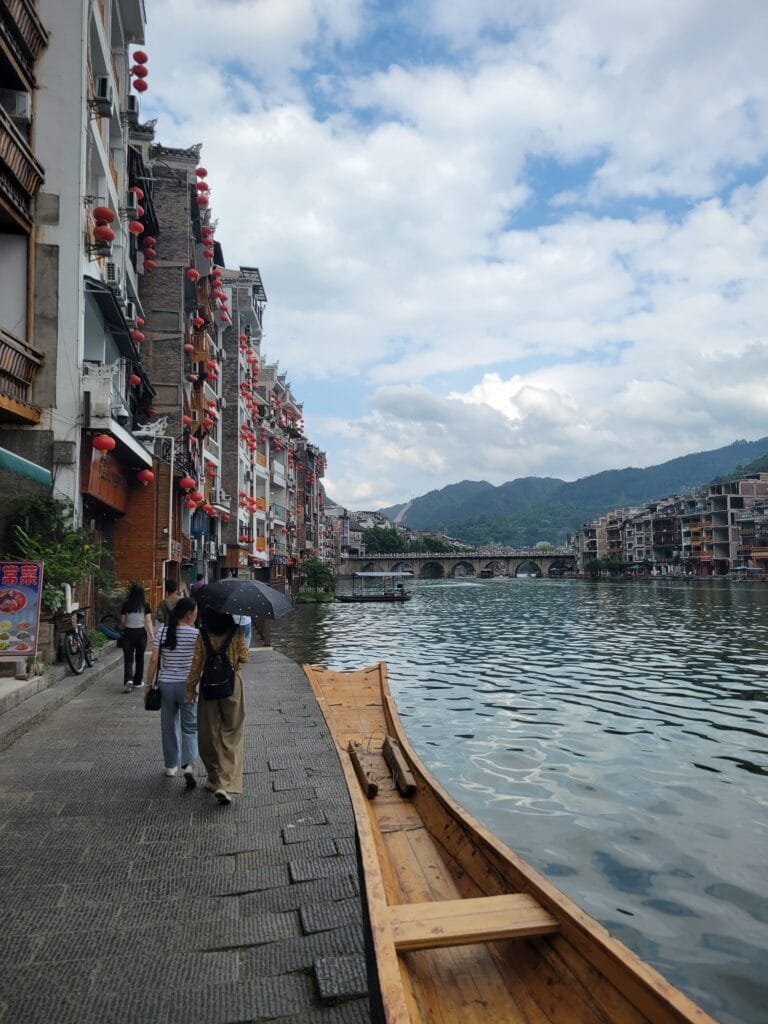
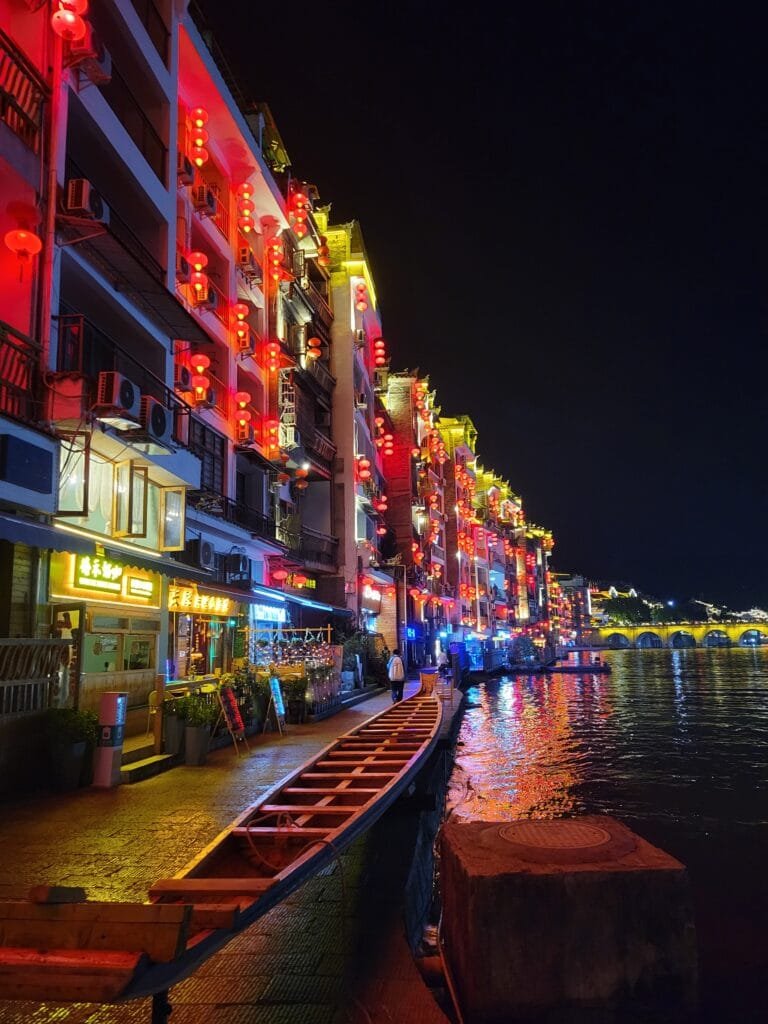
Next stop: Kaili
Smaller, poorer, but somehow more alive. We spent the day river paddling through a river and swam in a pool right in the arms of the mountains.
It felt like summer camp, carefree and light. Then we learned we had just missed the region’s famous village football festival, a local tournament where entire towns turn out to cheer. To bad!
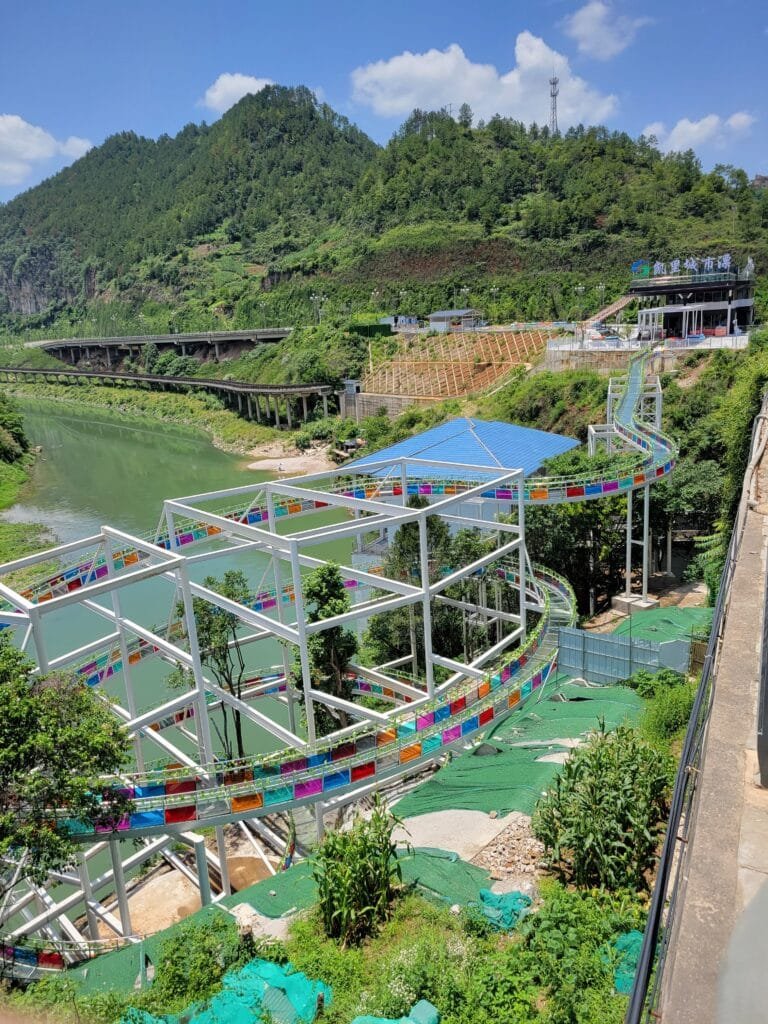
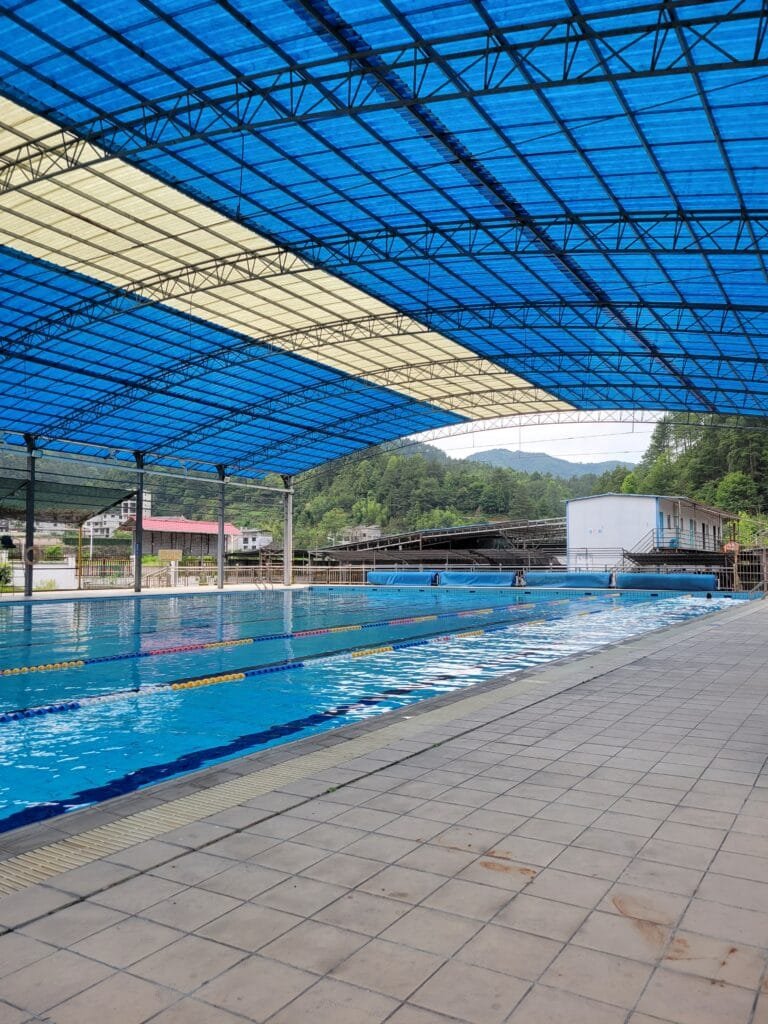
To the next province
Our hotel towered over a wide pedestrian street lined with cafés and a luxury mall, but the city itself felt alive. At night, bands played on the square while young people gathered, being loud and beautifully normal.
Downstairs from our hotel, a small food stall served sesame paste noodles, the kind of simple, perfect food you only find when you’re not looking.
We walked through the modern side of the city, walked until our legs ached, then found peace in a vast park by the river. That night, under dim streetlamps and the shadow of a lake, we ran 12 kilometers in silence.
The next day, we crossed the river to the other part of Wuhan, because it’s really two cities in one. The old town greeted us with charm: leafy lanes, indie cafés, and small shops tucked into restored buildings. It had soul.
We stayed three days in Wuhan, and every one felt good. Calm, surprising, and full of the kind of moments that make you forget the last bad hotel or the missed festival.
After Wuhan I started to miss my wife and life back home, so my good friend Tom went on to Shanghai Alone. Which makes me proud, because Shanghai and Guangzhou do have a small hassle with each other.
China’s middle provinces don’t show up on glossy travel magazines. They don’t have world wonders or Instagram-ready skylines. But they have something better: the unexpected. And in travel, sometimes that’s all you need.
